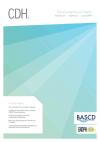Community Dental Health

- Cover Date:
- June 2019
- Print ISSN:
- 0265 539X
- Electronic ISSN:
- 2515-1746
- Vol:
- 36
- Issue:
- 2
Political economy, trade relations and health inequalities: lessons from general health
10.1922/CDH_SpecialIssueFrielJamieson05
Political economy, trade relations and health inequalities: lessons from general health [Special issue of Community Dental Health, to be disseminated at ‘Transnational Corporation and Oral Health Inequalities’ IADR symposium, June 2019, Vancouver]
This article argues that health outcomes, specifically nutrition related health outcomes, are socially determined, and can be linked to a
wider political economy in which peoples’ dietary consumption is structurally determined, evolving from political, economic and social
forces. The article examines trade and investment agreements as regulatory vehicles that cultivate poor dietary consumption and inequalities in health outcomes between and within countries. How does this happen? The liberalization of trade and investment, and unfettered
influence of powerful economic interests including transnational food and beverage companies has resulted in trade agreements that enable
excess availability, affordability and acceptability of highly processed, nutrient poor foods worldwide, ultimately resulting in poor nutrition
and consequently oral and other non-communicable diseases. These trade and nutrition policy tensions shine a spotlight on the challenges
ahead for global health and development policies, including achievement of the Sustainable Development Goals.
Key words: trade and investment treaties; nutrition; oral health, political economy; health inequities
- Article Price
- £15.00
- Institution Article Price
- £
- Page Start
- 152
- Page End
- 156
- Authors
- Sharon Friel, Lisa Jamieson
Articles from this issue
- Title
- Pg. Start
- Pg. End
- Editorial - How soon is soon enough? The challenge of implementing behaviours conducive to good oral health in at-risk infants and toddlers
- 89
- 90
- What influences use of dental services by the Korean disabled people? The role of perceived barriers in dental care system
- 101
- 105
- In-school toothbrushing programs in Aboriginal communities in New South Wales, Australia: A thematic analysis of teachers’ perspectives
- 106
- 110
- Relationship between Caregivers’ Oral Health Literacy and their Child’s Caries Experience
- 111
- 117
- The Effectiveness of Reform in the Dental Health Systems of Transitional Countries: The Case of Montenegro Health Reform (pilot study)
- 126
- 130
- Costs of dental care and its financial impacts on patients in a population with low availability of services
- 131
- 136
- Comparison of two measures to determine the oral health-related quality of life in elders with periodontal disease
- 143
- 149
